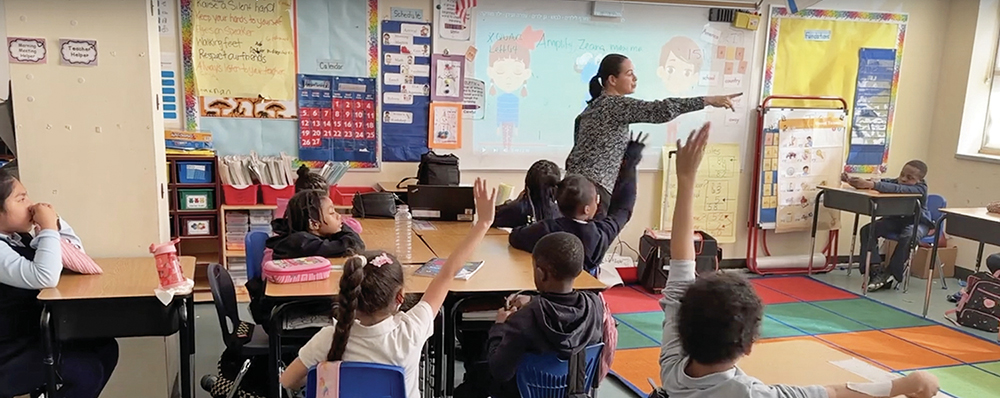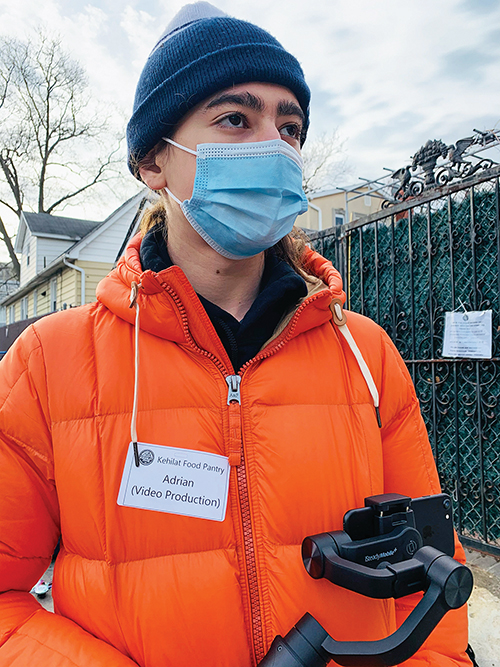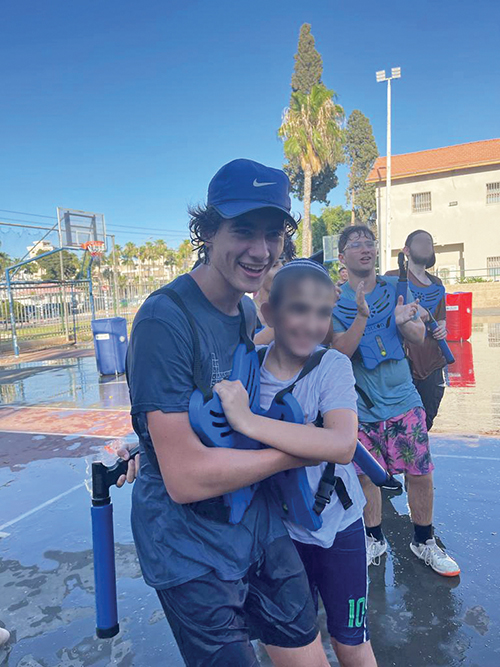
Fifteen-year old Adrian Rosenfeld boarded the southbound 1 train on New York’s Upper West Side, iPhone 7 in hand. The Ramaz School freshman was headed to the Kehilat food pantry in Queens. His mission? To shoot a promotional video highlighting the food pantry’s efforts to feed the needy of Queens.
Rosenfeld spent the day at the synagogue-based food pantry shooting iPhone footage, interviewing volunteers and observing the patrons, both Jewish and otherwise. The result was a professionally shot, gently scored two-minute film, available for free on YouTube and on Rosenfeld’s website. He filmed the video at no charge to Kehilat; in fact, he volunteered for the role.
Rosenfeld, now a senior, has since filmed numerous videos to benefit charitable causes near to his heart. He spent his summer filming a promotional video for Kol HaNearim children’s homes in Israel and is working on another one for next summer. He recently visited Brooklyn’s Hebrew Language Academy charter school to document their acceptance of 60 child refugees from Ukraine. He powered up his iPhone to benefit his brother Caleb’s charitable organization, Cutting It With Caleb, which promotes hair donation for cancer patients. Rosenfeld continues to shoot all this footage for free.
Rosenfeld became convinced that video is the most effective form of media in the eighth grade during a school assignment. Each student in his class was tasked with producing a short documentary on a European locale and exploring the fate of its Jewish community pre- and post-War War II. Rosenfeld submitted his project on Copenhagen and found himself inspired. Already a fan of YouTube, the Copenhagen project confirmed that video was the best way to reach the widest range of people. “Video levels the playing field,” said Rosenfeld.

During COVID, Rosenfeld found himself with a lot of downtime. He saw the opportunity to channel his inspiration towards good works. He emailed Kehilat and offered his services, and they happily accepted. When he isn’t focused on schoolwork, Rosenfeld devotes much of his time to emphasizing the charitable works of others, and he feels that video is the most impactful way to do it.
“It’s impossible to replicate the power of the visual image,” said Rosenfeld. “It’s one thing to read or hear about Ukrainian refugees, but actually watching a Ukrainian child integrate into an American school has a much more visceral effect.”
Rosenfeld revels in the way that video journalism can bridge the divide between different types of people. At Kehilat, it was the way the pantry reflected the eclectic mix of communities in Queens. At Kol HaNearim, it was the blend of American and Israeli cultures. And at the Hebrew Language Academy, it was helping Ukrainian children acclimate to their new home. “My favorite aspect of filming is documenting connections people make,” he explained.
Rosenfeld recently upgraded his iPhone 7 to an iPhone 14 and added an external microphone, lights, and a phone gimbal to his repertoire. He is looking to purchase a camera as well, but the pro bono nature of his work has proved an impediment. Camera or not, Rosenfeld’s work and process have grown increasingly more polished.
He finds the actual filming the easiest part of video production. He spends a lot more time connecting with organizations and editing the resulting footage. “I typically complete filming in under a day,” he explained.
Hard at work filming for well over two years, Rosenfeld is already something of a veteran. Yet people are often surprised by his youth when he arrives to begin production. Rosenfeld compensates for this impression by preparing as much as possible. He finds that having a prepared list of questions helps bolster his confidence when interviewing individuals much older than he. “That, and holding a notepad. It lends me a more professional air,” Rosenfeld claimed.
Rosenfeld enjoys receiving positive feedback for his work. Most of the compliments come from his clients, but he is experiencing his first brush with recognition by a wider audience. At a recent bar mitzvah, Rosenfeld found himself in conversation with a stranger. Upon hearing his name, she smiled in recognition. She had seen his video on Ukrainian refugees on one of her WhatsApp groups.

Rosenfeld plans to study in Israel next year and attend college in the States when he returns. He hasn’t yet decided on a career path, but he anticipates charitable filmmaking will remain an important part of his life. “I love making videos, and I plan to continue to use video to connect people and do good.”
If you or someone you know would like to be profiled in The Jewish Link, contact Zvi Wiesenfeld at zjwiesenfeld@gmail.com.









